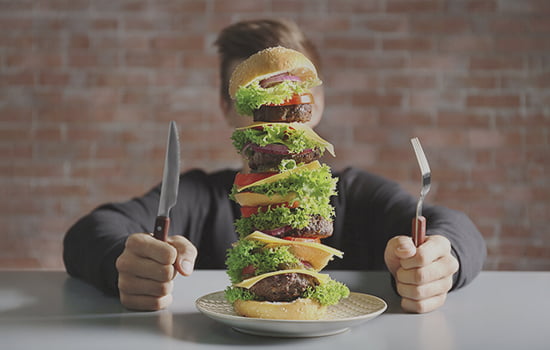Some American traditions are unique to this country. Nowhere else in the world, for example, do families and friends sit down to share an annual meal with the expressed purpose of overeating. Yet this seems to be the case at Thanksgiving. Watching a football game or two from the couch does little to relieve the situation and can make it worse. If this describes your traditions, consider what you’re doing to your body.
Gastric Distress Is Only One Result

Consistent overeating can lead to unhealthy weight gain and obesity. Obesity can lead to diabetes, heart disease, and other deadly illnesses. However, a single instance of overeating can have short-term consequences more serious than bloating and excess gas. Thanksgiving can cause a ripple effect throughout your body, even affecting your nervous system. The post-meal malaise you feel is not the result of the tryptophan in the turkey; it occurs due to increased blood flow to your digestive tract. It’s your body’s way of telling you that you’ve had enough.
The High Costs of Overeating
Everyone knows that the body stores excess calories as fat, but the sudden intake of excessive calories from one sitting has other detrimental effects. The increased blood flow to your intestines means less blood for your other bodily functions, including your brain. When you overload on food, you can’t tell your body, “Oh, it’s just this one time.” Your body reacts to the excess food automatically, working fast and prepares for more, which ultimately puts all your systems on alert. Your pancreas, for example, pumps out insulin to remove the excess sugar from your blood. Your liver, which helps digest fats, adjust cholesterol levels, and detoxify your food, can be damaged by overheating. Your heart works harder to keep your body working, which it does even while you sleep it off.
How to Approach the Thanksgiving Meal
Start Thanksgiving Day with a healthy breakfast. Go to the gym or go jogging in the morning while you have the time. Wear tight clothes to the table; they’ll remind you not to overeat. Start with the fresh fruit and vegetables in the appetizer tray. Pace yourself before dinner, and you won’t stuff yourself—exercise moderation during the meal. Take smaller portions and chew deliberately, savoring each bite.
Limit fatty foods and sweet beverages as much as you can. For dessert, take only a small slice of pumpkin pie, with fewer calories than pecan pie. Remember, the leftovers will taste just as good tomorrow, which is another holiday tradition.
Here are a few tips from our physicians at New York Gastroenterology to help you digest more effectively after the meal:
- Drink a full glass of water;
- Go for a leisurely walk around the block;
- Don’t snack; give your body time to digest.

